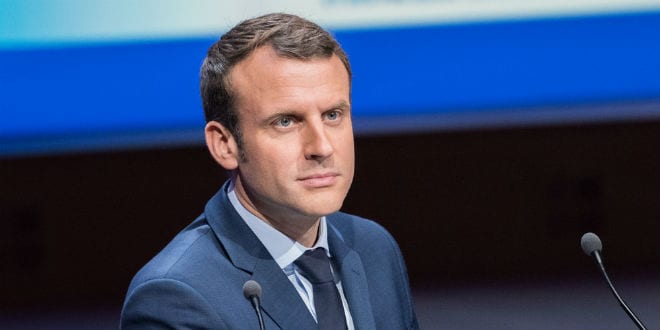French President Emmanuel Macron announced on Thursday that France intends to officially recognize a Palestinian state this coming September, a move that has triggered strong condemnation from Israeli leaders and American officials.
Speaking in Paris, Macron said the decision aligns with France’s “historic commitment to a just and lasting peace in the Middle East.” He added that the declaration would be made formally during his address to the United Nations General Assembly. “The urgent priority today is to end the war in Gaza and to bring relief to the civilian population,” Macron stated.
However, Israeli Prime Minister Benjamin Netanyahu harshly denounced the decision, warning that it rewards terrorism and endangers Israel’s security. “Recognizing a Palestinian state next to Tel Aviv in the wake of the Oct. 7 massacre rewards terror and risks creating another Iranian proxy, just as Gaza became,” Netanyahu said. “A Palestinian state in these conditions would be a launch pad to annihilate Israel—not to live in peace beside it.”
Israel’s ambassador to the United Nations, Danny Danon, also criticized the announcement, calling it “a disgraceful reward for terrorism.” Danon stated that Macron’s recognition comes “precisely at a time when Hamas is still holding hostages” and added that such moves ignore the reality on the ground, where “Israel has no partner for peace.”
U.S. Secretary of State Marco Rubio joined the chorus of condemnation, calling the move “reckless” and accusing Macron of undermining peace. “This decision only serves Hamas propaganda and is a slap in the face to the victims of Oct. 7,” Rubio said. Similarly, Senator Tom Cotton (R-Ark.) labeled it “a shameful endorsement of terrorists,” arguing that peace will come only through the defeat of Hamas.
The American Israel Public Affairs Committee (AIPAC) issued a strongly worded statement accusing Macron of “acting as Hamas’s handmaiden.” The organization said the unilateral recognition of a Palestinian state “makes peace and reconciliation even more elusive” and urged the U.S. government to push back against the French initiative.
In a more tongue-in-cheek response, U.S. Ambassador to Israel Mike Huckabee mocked Macron’s announcement on social media. “Macron’s unilateral ‘declaration’ of a ‘Palestinian’ state didn’t say WHERE it would be. I can now exclusively disclose that France will offer the French Riviera & the new nation will be called ‘Franc-en-Stine,’” he wrote, referencing the novel Frankenstein.
Macron's unilateral "declaration" of a "Palestinian" state didn't say WHERE it would be. I can now exclusively disclose that France will offer the French Riviera & the new nation will be called "Franc-en-Stine."https://t.co/zCZR0Fj9tc
— Ambassador Mike Huckabee (@GovMikeHuckabee) July 25, 2025
In another post, Huckabee added, “How clever! If Macron can just ‘declare’ the existence of a state perhaps the UK can ‘declare’ France a British colony!”
How clever! If Macron can just “declare” the existence of a state perhaps the UK can “declare” France a British colony!
— Ambassador Mike Huckabee (@GovMikeHuckabee) July 25, 2025
https://t.co/f33OkTmopO via @JNS_org
A Growing List of Recognitions
Macron’s move would place France among a growing number of countries that have unilaterally recognized “Palestine” as a sovereign state. More than 140 of the 193 United Nations member states have recognized a Palestinian state, although most Western democracies—including the United States, Germany, and the United Kingdom—have not.
The Vatican recognized the “State of Palestine” in 2015, signing a bilateral agreement that referred to Palestine as a state and marking a significant diplomatic shift. Other notable countries that have extended recognition include Russia, China, India, Brazil, and South Africa, along with most of the Arab League and countries in Latin America and Africa.
Despite widespread international recognition, critics argue that such declarations are symbolic and do not reflect realities on the ground. Israel continues to maintain security control over much of Judea and Samaria (commonly referred to internationally as the West Bank), and Hamas—a U.S.-designated terrorist organization—remains in control of the Gaza Strip.
With Macron’s upcoming announcement at the UN, the debate over unilateral recognition of Palestinian statehood is likely to intensify, particularly as the Gaza war continues and international pressure mounts for a post-conflict political solution.





